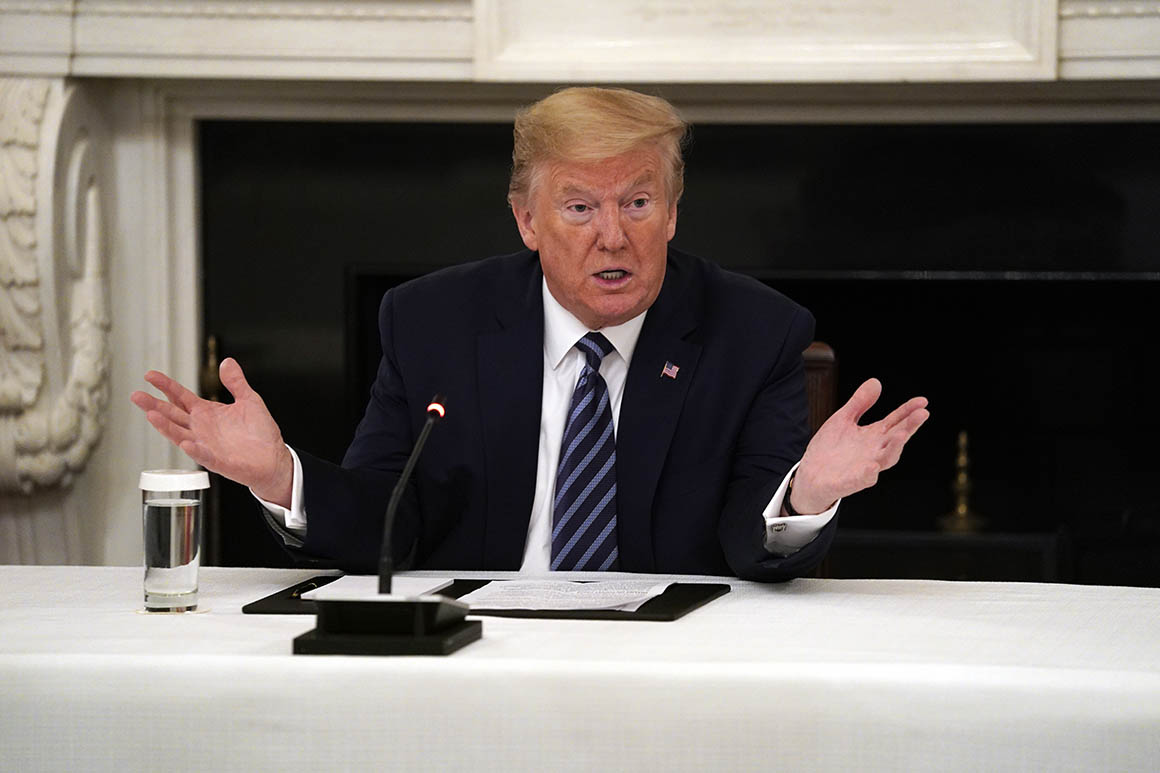
Trump appears to recognize the urgency. Last month, political advisers briefed Trump on internal polls showing Biden winning in battleground states, and Trump losing the surge of support that initially accompanied his handling of the coronavirus pandemic.
“Clearly he was planning on running on a good economy with Joe Biden being old-school politics and scandal-ridden with his son,” said Lee Miringoff, director of the Marist College Institute for Public Opinion. “And that whole playbook has long been trashed. So, there’s a new playbook.”
Trump’s campaign is now preparing to unload a barrage of negative ads on Biden, expecting to spend more than $10 million in an effort to weaken the presumptive Democratic nominee. Trump campaign manager Brad Parscale likened the campaign to a “death star.”
“Public polls have been wrong about President Trump since 2016,” said Tim Murtaugh, a spokesman for Trump’s reelection effort. “Joe Biden has only been the president’s apparent opponent for a little while, and we have only just begun to define him. When Americans learn the full story about Joe Biden’s embarrassing record, the choice for voters will be clear.”
Trump pollster John McLaughlin said of Biden’s more favorable image than Clinton’s: “We’re not going to let this go on forever … This will not be a one-sided election. There’ll be a contrast, and once we have that contrast, the president will win.”
Trump did overcome a polling disadvantage four years ago, and the top-line margins between Trump and Biden are similar to polls from the same time in 2016. Trump is trailing Biden by about 5 percentage points nationally, according to the Real Clear Politics polling average, and he is lagging in swing states — including in Michigan, Wisconsin, Pennsylvania and Florida. At this point in 2016, Clinton national lead was slightly larger.
Clinton was leading Trump in the run-up to the 2016 election among voters who disapproved of both politicians, too. But that margin was consistently smaller than Biden’s — less than 10 percentage points in most polls before Election Day.
“There are a number of people who hate politics and politicians, and they play somewhat of a swing role in the country,” said Mark Mellman, a Democratic pollster.
In 2016, he said, “the people who decided the election were people who disliked both Clinton and Trump, and they voted overwhelmingly for Trump. This time, it’s a smaller number of people who dislike Trump and Biden, but that smaller number of voters is voting for Biden.”
Anna Greenberg, a pollster who advised former Colorado Gov. John Hickenlooper’s presidential campaign, recalled focus groups in 2016 in which voters were “shut down to Clinton and not so shut down to Trump.” They’d often say, “I don’t like him,” but would offer reasons why they might vote for Trump, anyway.
Now, Greenberg said, Trump is “so much more defined,” and “Biden’s numbers are not off-the-chart great, but they’re not terrible.”
Biden is better liked by voters than Clinton was at this point in the campaign four years ago. And the coronavirus pandemic — and the public attention it has commanded — has had the effect of freezing the campaign, making it more onerous for Trump to train voters’ attention on anything else.
He is losing to Biden by almost exactly the same margin now as he was in March, before the pandemic took hold.
Ben Tulchin, Sanders’ pollster, said that in the Democratic primary, “once we were behind after Super Tuesday and coronavirus started kicking in, it was impossible to change the narrative because voters were not focused on the race anymore. They were focused on the global pandemic.”
In the primary, Tulchin said, Biden’s favorability rating “held up better than Hillary’s did.” Now, for the purposes of the general election, Tulchin said, Biden is “locking in when he’s ahead.”
Whit Ayres, a Republican pollster, said that while Biden “does not seem to generate the same degree of animosity that Hillary Clinton did,” there is still room to shape public opinion around him.
“The imperative for [Trump’s] campaign is to turn the 2020 election from a referendum to a choice, and then to disqualify Joe Biden as an acceptable choice,” Ayres said.
If Trump can accomplish that, Republicans believe he could tilt the electoral landscape back in his direction, especially if the pandemic subsides and the economy begins to recover.
“It’s a one-two,” said Greg McNeilly, a Republican strategist in Michigan.
“You disqualify Biden, and then there’s so many factors outside of his control,“ he said. „If the country is kind of the way we started the year … you get back to that, with Biden’s negatives up high, [Trump] can pull this off.”
On the other hand, McNeilly said, “If you run Biden’s negatives up and everybody’s super dour on the country, they’re still going to be willing to try something new.”
Source: politico.com
See more here: news365.stream






